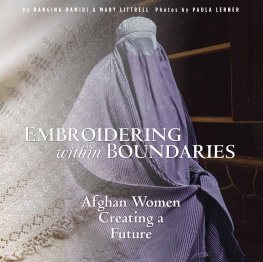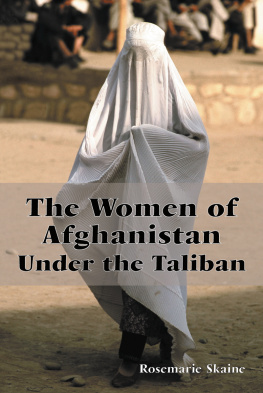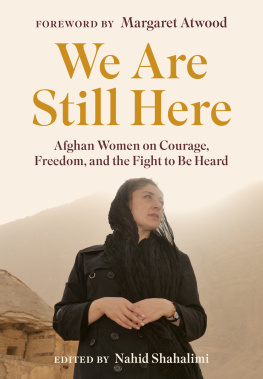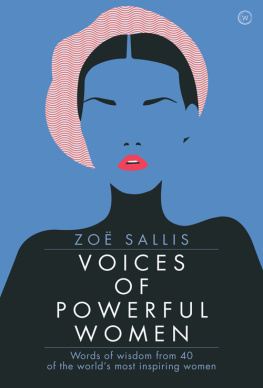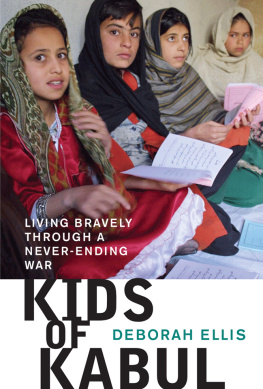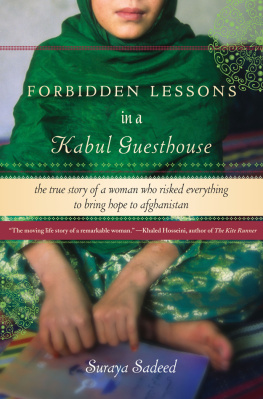George W. Bush Institute - We are Afghan women : voices of hope
Here you can read online George W. Bush Institute - We are Afghan women : voices of hope full text of the book (entire story) in english for free. Download pdf and epub, get meaning, cover and reviews about this ebook. City: Afghanistan, year: 2016, publisher: Scribner, genre: Detective and thriller. Description of the work, (preface) as well as reviews are available. Best literature library LitArk.com created for fans of good reading and offers a wide selection of genres:
Romance novel
Science fiction
Adventure
Detective
Science
History
Home and family
Prose
Art
Politics
Computer
Non-fiction
Religion
Business
Children
Humor
Choose a favorite category and find really read worthwhile books. Enjoy immersion in the world of imagination, feel the emotions of the characters or learn something new for yourself, make an fascinating discovery.

- Book:We are Afghan women : voices of hope
- Author:
- Publisher:Scribner
- Genre:
- Year:2016
- City:Afghanistan
- Rating:5 / 5
- Favourites:Add to favourites
- Your mark:
We are Afghan women : voices of hope: summary, description and annotation
We offer to read an annotation, description, summary or preface (depends on what the author of the book "We are Afghan women : voices of hope" wrote himself). If you haven't found the necessary information about the book — write in the comments, we will try to find it.
Afghanistan has been described as the worst nation in the world to be a woman. More than fifty percent of girls who are forced into marriage are sixteen or younger. Too many women live in fear and in many areas, education and employment for women are still condemned. The women featured in We Are Afghan Women are fighting to change all that. From rug weavers to domestic violence counselors to business owners, educators, and activists, these courageous women are charting a new path for themselves, their families, their communities, and their nation. Told in their own voices, their stories vividly capture a country undone by decades of war and now struggling to build a lasting peace.
Meet Dr. Sakena Yacoobi, who ran underground schools for girls until the Taliban fell, and today has established educational centers across Afghanistan to teach women and girls basic literacy. Or Freshta Hazeq, who as a female business owner, has faced death threats, sabotage, and even kidnapping threats against her children. Naheed Farid is the youngest female member of Afghanistans parliament. During her campaign, opponents cut Naheeds face out of campaign posters and her family risked complete ruin, but her husband and father-in-law never wavered, encouraging her to persevere. Here, too are compassionate women such as Masooma Jafari, who started a national midwives association. Her own mother was forced into marriage at age twelve and gave birth to her first child at age thirteen.
With an introduction by former First Lady Laura Bush, We Are Afghan Women chronicles the lives of young and old, daughters and mothers, educated, and those who are still learning. These determined women are defying the odds to lead Afghanistan to a better future. Their stories are a stark reminder that in some corners of the world the struggle continues and that womens progress in society, business, and politics cannot be taken for granted. Their eloquent words challenge all of us to answer: What does it truly mean to be a woman in the twenty-first century?
George W. Bush Institute: author's other books
Who wrote We are Afghan women : voices of hope? Find out the surname, the name of the author of the book and a list of all author's works by series.

